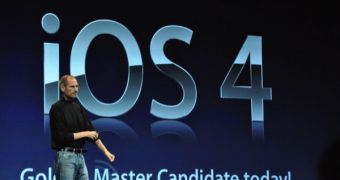An important change in wording has been spotted in Apple's iPhone developer terms, reports say. Certain iPhone developers should welcome the news, as it allows them to continue using interpreted languages such as Lua in their App Store applications. Game developers are particularly targeted here.
Matt Drance (Apple Outsider) has found what he calls “a small but very significant change to the iPhone Developer Program License Agreement.” The blogger posts wording from the controversial section 3.3.2 of Apple’s iPhone Developer License Agreement, which goes, “No interpreted code may be downloaded or used in an Application except for code that is interpreted and run by Apple’s Documented APIs and built-in interpreter(s).”
The changed agreement now says that, “Unless otherwise approved by Apple in writing, no interpreted code may be downloaded or used in an Application except for code that is interpreted and run by Apple’s Documented APIs and built-in interpreter(s). Notwithstanding the foregoing, with Apple’s prior written consent, an Application may use embedded interpreted code in a limited way if such use is solely for providing minor features or functionality that are consistent with the intended and advertised purpose of the Application.”
It is obvious for those who write code for a living that the new terms suggest Apple’s acknowledgement that there’s a difference between an app using non-compiled code, and a meta-platform, Drance outlines, adding that it’s a step in the right direction for Apple. And for good reason too, as the company’s recent changes in policy regarding iPhone OS development have attracted the first official investigation into its business practices, reports say. The U.S. Federal Trade Commission has reportedly completed negotiations with the Department of Justice to examine whether Apple’s limitations on App Store software harms competition.

 14 DAY TRIAL //
14 DAY TRIAL //